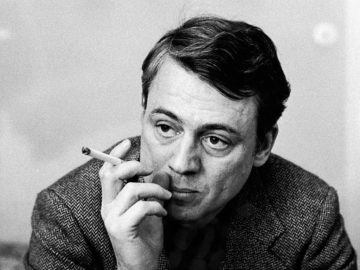Ryan Ruby in The New Statesman:
 Unlike most modern European languages, English designates book-length works of prose fiction with the term “novel”. Imported sometime in the mid-16th century from Italy – where novella had been coined to describe the short stories collected in Boccaccio’s Decameron 200 years before – and extended to its more or less current sense in the 17th century, the word retains a semantic filiation to that other child of the age of print, the newspaper, and thus to the concepts of information and modernity itself. Until the Austenite revolution of 1811 the novel often cloaked itself in the trappings of genres later classified as nonfiction – histories, biographies, travelogues, letters – in addition to descriptors derived from oral tradition like stories, tales and chronicles. Thereafter, newspapers provided it with an essential platform, where serialised fictional narrative existed on a continuum with scenes, sketches, feuilleton pieces and other genres of reportage. It is clear that one of the tangential pleasures of reading fiction during the golden age of the novel was akin to consuming “news”, whether it was about country life, factory conditions, adventures on the high seas, or scandalous crimes.
Unlike most modern European languages, English designates book-length works of prose fiction with the term “novel”. Imported sometime in the mid-16th century from Italy – where novella had been coined to describe the short stories collected in Boccaccio’s Decameron 200 years before – and extended to its more or less current sense in the 17th century, the word retains a semantic filiation to that other child of the age of print, the newspaper, and thus to the concepts of information and modernity itself. Until the Austenite revolution of 1811 the novel often cloaked itself in the trappings of genres later classified as nonfiction – histories, biographies, travelogues, letters – in addition to descriptors derived from oral tradition like stories, tales and chronicles. Thereafter, newspapers provided it with an essential platform, where serialised fictional narrative existed on a continuum with scenes, sketches, feuilleton pieces and other genres of reportage. It is clear that one of the tangential pleasures of reading fiction during the golden age of the novel was akin to consuming “news”, whether it was about country life, factory conditions, adventures on the high seas, or scandalous crimes.
Over the course of the 20th century radio, film, television and digital media eroded print’s controlling stake in information transfer. Already in 1946 Gertrude Stein was complaining that “everyone gets so much information all day long that they lose their common sense”.
More here.
